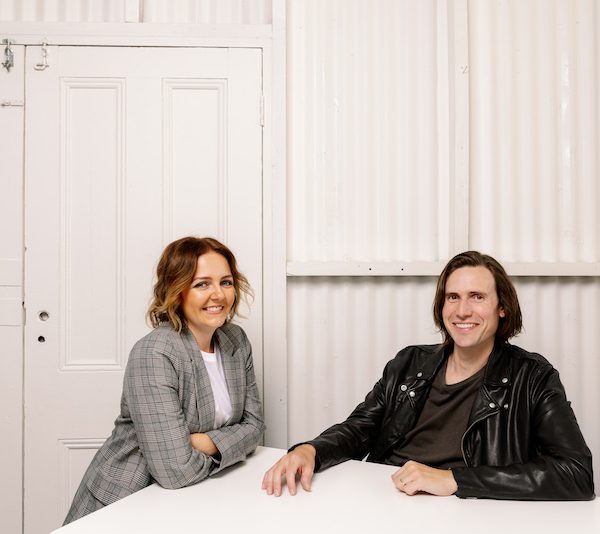Music education is taking a back seat in Australia’s classrooms [opinion]
![Music education is taking a back seat in Australia’s classrooms [opinion]](https://images-r2.thebrag.com/tmn/uploads/music-education.png)
Despite available resources, Australian primary schools are choosing to invest in sport over music education – a systemic bias with future economic consequences writes Amplify CEO Ricky Kradolfer.
Like a lot of people who are reading this, I grew up in a house full of music.
When I was about seven, the catholic primary school that I went to in Adelaide decided that they would offer instrument lessons. The only catch was that you had to go across the road to the all-girls high school to have them.
They didn’t get many takers. In fact, it was just me that took up the opportunity to learn guitar.
As a young boy who didn’t have sisters, walking into an all-girls high school was pretty intimidating, but carrying my guitar made me feel really cool. It is my earliest memory of feeling like “me”. And while I seemed to be starting out on my musical journey alone, I knew it was the beginning of something.
The confidence carried through to when I started high school where I was fortunate to attend an all-boys college that had an established music program. I spent many a lunchtime in the safe-haven of the music room with my fellow music-loving friends, sharing songs from bands that were blowing our minds. And while I loved playing the guitar, I was frustrated because the education that I had had since starting out at the age of seven now somehow felt limiting and conflicting to what I wanted to do.
After finishing school, I started playing in bands and writing my own songs. This is what music was all about for me. I was lucky enough to tour the world, have my songs played on radio, write a song that achieved gold sales and have a damn good time doing it.
Fast forward to now and I’m one of the people having an impact on young peoples’ lives.
As a music educator working with primary school children, I was shocked to learn that over one million primary school students aren’t learning music as part of their day-to-day education, even though it is part of all four curriculums used in Australia. After further research, it became apparent that there are several reasons why this is the case.
The first reason is geography. Australia is a big, vast country and many schools are quite isolated. In New South Wales alone, there are just over 300 primary schools that have less than 50 students enrolled. Finding teachers for regional and rural schools is challenging, let alone specialist teachers. Speaking of specialist teachers, they are a rare find! It is estimated that only 23% of public schools in Australia have a specialist music teacher. For those without, the responsibility falls to the classroom teacher to teach music as per the curriculum, but a lot of the time they don’t have the knowledge or confidence to be able to do so in a way that connects with their students.

Pictured: Amplify cofounders Natalie & Ricky Kradolfer
The benefits of music education in a primary school setting are widely researched and reported. By using my in-school programme Amplify, that I co-founded with my wife, Natalie Kradolfer, all the challenges above can be instantly overcome. Amplify can be used in any school, anywhere in Australia (and one day hopefully the world) and empowers generalist classroom teachers to deliver contemporary, relevant and real-world music lessons to their class that meet all outcomes in the curriculum. We let teachers do what they do best – help students acquire, retain and apply knowledge regardless of their musical ability – all of that is done for them.
However, a fundamental shift needs to happen with the value that is placed on music. Wouldn’t it be great if education leaders talked about the importance of music in the same way they talk about literacy, numeracy and dare I say, sport? And this shift needs to happen at primary school, because by the time students get to high school it’s too late.
Throughout the pandemic, governments continuously showed a preference for sports over the arts, at both a school level and in broader society. School students were allowed to return to school and inter-school sport while music was still on the “maybe” list. When I talk to schools about using Amplify for music, more times than you would believe a school will say “we are putting our budget into sport” or “we are focusing on sport this term”. For clarity, I love sport and believe it is a very important part of a balanced education, but the decision of “music OR sport” just shows the systemic imbalance of value.
Countries that place a higher value on music education and consider it essential, such as Finland, South Korea, and Denmark, all outperform Australia in global rankings such as PISA (academia based). That is not a coincidence. Finland has about one-quarter of the population of Australia, yet our music industries generate around the same amount of money (comparison pre-COVID). Once again, it’s not a coincidence.
Using technology to make music education widely accessible is not only going to benefit student outcomes right now, but also completely change the value that is placed on music and the arts in the future.
When I look back on my music education, I’m so grateful that I had the balls to be the only kid in the school that learnt the guitar because it made me who I am. Everything I would change about it, I’m doing and so much more with Amplify and seeing the results firsthand is amazing. I know the value of music will shift, but it’s a marathon, not a sprint.






























